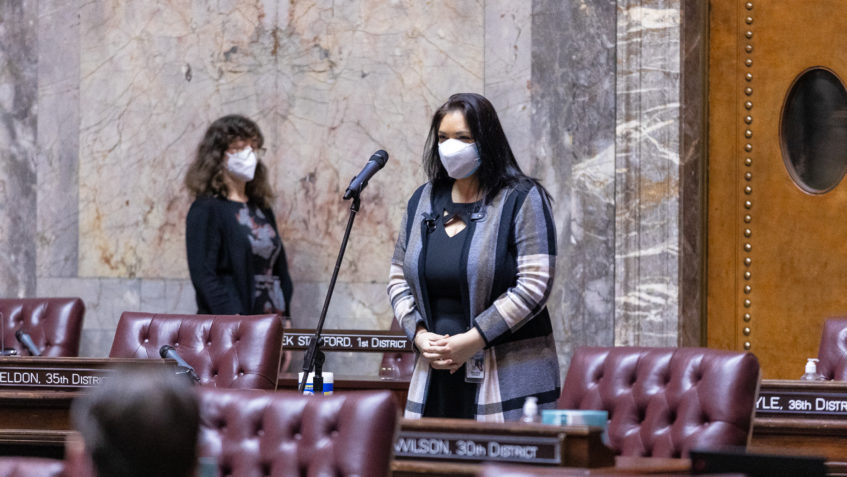OLYMPIA – Washington state could provide hope to incarcerated people who have transformed themselves, under a bill passed by the Senate today.
“The criminal justice system sees people at their worst moment in life,” said Sen. Manka Dhingra (D-Redmond), the bill’s sponsor. “The system has not been doing a good job recognizing that people change. For many years, our country allowed the need for punishment and the need for rehabilitation to get out of balance. Today, we have an opportunity to help restore that balance.”
SB 5036, passed today on a vote of 27-21, would expand and professionalize the state’s Clemency and Pardons Board (CPB), allow incarcerated individuals to petition for their sentence to be commuted after having served 15 to 25 years in prison, and establish criteria by which the clemency board could recommend commutation. The decision on commutation, and any conditions to be placed upon it, would remain in the purview of the governor.
The CPB would be expanded from five members to ten, who will receive a salary. The membership would reflect the model used in criminal trials—representatives of the defense, the prosecution, the judicial system, and the community. A full list of membership criteria is here.
Incarcerated people would be eligible to petition the CPB for conditional commutation of their sentences after they have served 20 consecutive years or longer in some circumstances. The only exception is that people convicted of robbery in the second degree as their “third strike” under Washington’s persistent offender statute would be allowed to apply after 15 years. SB 5288, passed by the Legislature in 2019, removed robbery in the second degree from the list of offenses that qualify a person as a persistent offender.
The bill would also establish a list of criteria that the CPB must take into account when considering conditional commutation, including public safety, evidence of a person’s rehabilitation, and the likelihood that they will reoffend. A full list is available here.
If the CPB recommends conditional commutation, it forwards that recommendation to the governor, who may follow the recommendation but is not required to. The governor may also place conditions on the commutation, and the state Department of Corrections must monitor anyone released on conditional commutation.
SB 5036 now goes to the House of Representatives for consideration. It has until April 11 to be approved by the House to be eligible to become law this year.
The 2021 legislative session is scheduled to adjourn on April 25.




